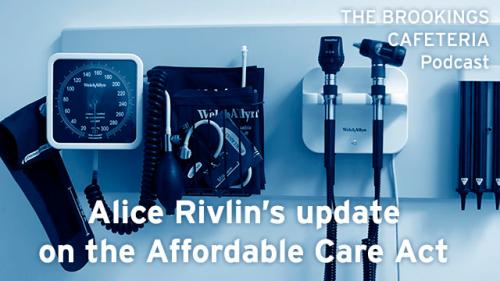About 30 percent of Medicare beneficiaries enroll in private Medicare Advantage (MA) plans—but at a relatively high cost. Changes to “Medicare as we know it” are necessary to ensure that this popular, successful program is able to deliver higher quality care at a sustainable cost to the much larger population of older beneficiaries who will be eligible by 2030.
In a special Medicare edition of the Forum for Health Economics and Policy journal, Brookings Senior Fellow Alice Rivlin and Willem Daniel cut through partisan political rhetoric surrounding Medicare reforms to explain the pros and cons of strengthening competition in Medicare Advantage.
According to the authors, competitive bidding among MA plans (Plan One) or among MA plans and Fee-for-Service (Plan Two or Premium Support) could reduce the cost of Medicare, especially in densely populated urban areas. However, there would be serious challenges in rural areas and risk adjustment methodology would have to be substantially improved.
Furthermore, Rivlin and Daniel note that a more ambitious plan to bring traditional Medicare into structured competition with Medicare Advantage could yield additional cost savings, though it could also involve higher premiums for beneficiaries choosing to stay with a preferred provider or broader network.
The Brookings Institution is committed to quality, independence, and impact.
We are supported by a diverse array of funders. In line with our values and policies, each Brookings publication represents the sole views of its author(s).










Commentary
Could improving choice and competition in Medicare Advantage be the future of Medicare?
December 1, 2015